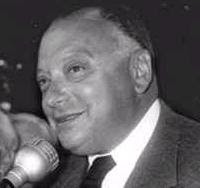.
 Pauli, Wolfgang (1900-1958), Austrian-born Swiss physicist and Nobel laureate, known for his definition of the exclusion principle in quantum mechanics. He was born in Vienna, and educated at the University of Munich. He taught physics at the Universities of Göttingen (1921-1922), Copenhagen (1922-1923), and Hamburg (1923-1928) and was professor of theoretical physics at the Federal Institute of Technology in Zürich from 1928 until his death in 1958. He also served as visiting professor at the Institute for Advanced Study at Princeton, New Jersey (1935-1936, 1940-1945, 1949-1950, and 1954).
Pauli, Wolfgang (1900-1958), Austrian-born Swiss physicist and Nobel laureate, known for his definition of the exclusion principle in quantum mechanics. He was born in Vienna, and educated at the University of Munich. He taught physics at the Universities of Göttingen (1921-1922), Copenhagen (1922-1923), and Hamburg (1923-1928) and was professor of theoretical physics at the Federal Institute of Technology in Zürich from 1928 until his death in 1958. He also served as visiting professor at the Institute for Advanced Study at Princeton, New Jersey (1935-1936, 1940-1945, 1949-1950, and 1954).In 1925 Pauli defined the exclusion principle, also called the Pauli exclusion principle, which states that no two electrons can occupy the same quantum state simultaneously in an atom (see Atom and Atomic Theory; Quantum Theory). Four quantum numbers—principle, angular momentum, magnetic, and spin quantum numbers—define the quantum state of an electron. Pauli’s exclusion principle states that no two electrons in the same atom can share all four quantum numbers. Pauli’s hypothesis in 1930 of the existence of the neutrino, a subatomic particle, was a fundamental contribution to the development of meson theory. He was awarded the 1945 Nobel Prize in physics.
